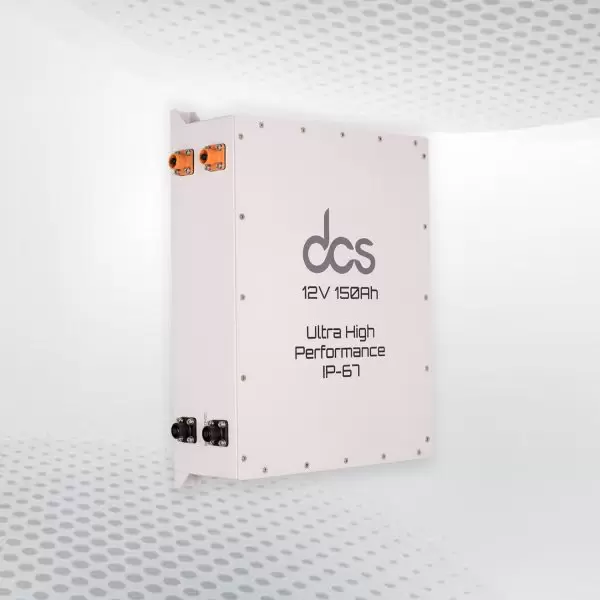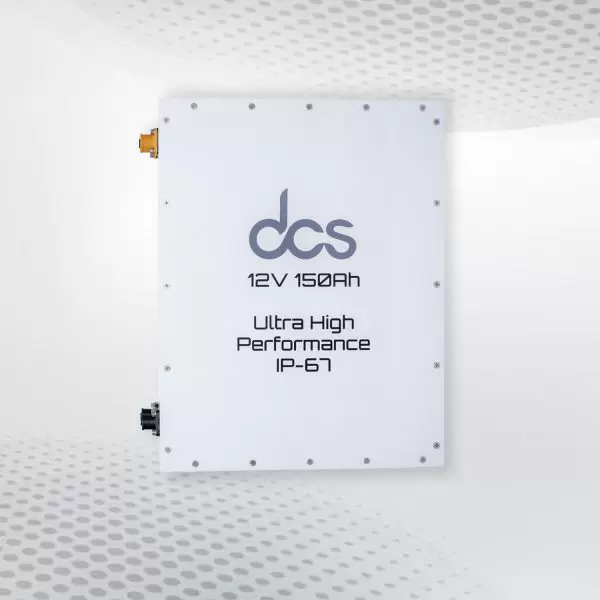For decades, energy storage has been a challenge for many industries. The 150ah lithium battery has emerged as a viable solution to address this. This innovative battery technology offers significantly more energy storage capacity than traditional lead-acid batteries, making it ideal for powering electric vehicles, renewable energy storage systems, and mobile devices. In this blog post, we will discuss the potential of the 150-ah lithium battery and how it can revolutionize energy storage. We will also look at the advantages of using this technology and explore some of the challenges associated with its deployment.
The Importance of Energy Storage
Energy storage is an essential part of modern energy systems. As the world shifts towards renewable energy sources, efficient energy storage has become more crucial than ever before. It helps to balance the power grid, prevent power outages, and optimize energy usage. Energy storage systems also make it possible to store surplus energy generated by renewable sources and utilize it during periods of high demand.
Moreover, efficient energy storage can bring economic benefits. Businesses and utilities can reduce their electricity costs by storing energy during low demand and supplying it during peak demand. Energy storage systems can also reduce the need for new power generation facilities, lowering capital costs and operational expenses.
Overall, efficient energy storage is essential for renewable energy sources’ sustainable, cost-effective, and reliable integration into our power systems. As we build a cleaner and greener future, we must invest in developing new and innovative energy storage technologies to meet the growing demand for energy storage.
Understanding Lithium Batteries
Lithium batteries are widely used in portable electronic devices such as smartphones and laptops due to their high energy density and low self-discharge rate. They are rechargeable and provide a high output voltage, making them ideal for applications requiring high power. Lithium batteries are also popular in electric vehicles and grid-scale energy storage systems because they can store much energy in a compact form factor.
The main components of a lithium battery are the cathode, anode, electrolyte, and separator. Lithium-ion batteries are the most commonly used type of lithium battery. Lithium ions move from the cathode to the anode during charging, and during discharging, they return to the cathode. This movement of ions creates a flow of electrons that generates electricity.
The performance of lithium batteries is affected by factors such as temperature, charging and discharging rate, and cycle life. To ensure the longevity and efficiency of a lithium battery, it is important to use a suitable charging method and avoid exposing it to extreme temperatures.
Lithium batteries constantly evolve, with researchers exploring new materials and designs to improve their performance and reduce costs. The development of the 150-ah lithium battery is a significant milestone in the evolution of lithium batteries, as it offers a high-capacity energy storage solution for various applications.
The Potential of the 150-ah lithium battery
As we look towards the future of energy storage, lithium batteries have emerged as the most promising solution. The 150-ah lithium battery, in particular, has garnered significant attention for its ability to provide efficient energy storage for a wide range of applications.
With a capacity of 150Ah, this type of battery is able to store a large amount of energy, making it an ideal solution for powering electric vehicles, homes, and even large-scale industrial applications. The high energy density and long cycle life of lithium batteries also make them a more cost-effective and environmentally-friendly solution than traditional lead-acid batteries.
One of the most exciting aspects of the 150-ah lithium battery is its potential to revolutionize the renewable energy industry. By providing a reliable source of energy storage, it can help address one of the main challenges facing renewable energy technologies – the issue of intermittent power generation.
Overall, the 150-ah lithium battery has the potential to transform the way we think about energy storage. With its high energy density, long cycle life, and ability to provide reliable energy storage, it is poised to become an essential component of our energy infrastructure in the years to come.
Applications and Benefits of Efficient Energy Storage
Efficient energy storage can benefit a wide range of industries and applications, including but not limited to:
- Renewable Energy: The use of renewable energy sources such as solar and wind power require energy storage solutions to manage intermittency. Lithium batteries can help store energy when it’s generated and distribute it when needed.
- Electric Vehicles: The demand for electric vehicles (EVs) is growing rapidly, and efficient energy storage is a critical component. Lithium batteries provide the high energy density, fast charging, and long cycle life necessary for EVs to be practical and sustainable.
- Consumer Electronics: Smartphones, laptops, and other devices all require energy storage for their operation. Lithium batteries provide high energy density and lightweight construction, making them ideal for use in portable devices.
- Medical Equipment: Reliable energy storage is essential in the medical field for backup power in the event of a blackout or other emergency situation. Lithium batteries provide high capacity, long cycle life, and maintenance-free operation.
The benefits of efficient energy storage include reducing greenhouse gas emissions, enhancing energy independence and security, improving grid stability and reliability, and increasing access to electricity in remote and off-grid areas. As lithium battery technology continues to improve, the potential applications and benefits will only continue to grow.
Challenges and Future Developments in Lithium Battery Technology
Despite the numerous benefits of lithium batteries, there are still several challenges facing their widespread adoption. One major challenge is the high cost of production, which limits their affordability to certain applications. Additionally, there is a growing concern around the environmental impact of lithium mining and battery disposal. To address these concerns, researchers are exploring ways to recycle and reuse lithium batteries, as well as finding more sustainable methods for sourcing lithium.
In terms of future developments, there is a growing interest in solid-state lithium batteries that offer higher energy density and improved safety. These batteries replace the traditional liquid electrolyte with a solid-state electrolyte, which eliminates the risk of leakage and reduces the risk of fire. Additionally, there is ongoing research into using alternative materials such as sodium or potassium as a substitute for lithium, which could reduce costs and address concerns around lithium availability.
As lithium batteries continue to revolutionize energy storage, it is important for researchers and manufacturers to address the challenges and drive innovation towards more sustainable, cost-effective, and efficient energy storage solutions.
150 ah lithium battery
The 150 ah lithium battery is a powerful and efficient energy storage solution that has revolutionized the way we store and use electricity. With its high energy density and long cycle life, this battery is a game-changer for renewable energy systems, electric vehicles, and other applications that require reliable and sustainable power sources.
Compared to traditional lead-acid batteries, the 150-ah lithium battery offers several advantages. First and foremost, it has a much higher energy density, which means that it can store more energy in a smaller and lighter package. This makes it an ideal choice for portable and mobile applications.
Additionally, lithium batteries are much more efficient than lead-acid batteries, which means that they can discharge more energy without losing power. They also have a longer cycle life, which means that they can be charged and discharged many times before they need to be replaced.
The 150-ah lithium battery is particularly well-suited for use in renewable energy systems, such as solar panels and wind turbines. It can store energy during periods of excess production and release it when demand is high. This helps to balance the grid and reduce reliance on fossil fuels.
Overall, the 150-ah lithium battery is a versatile and powerful energy storage solution that has the potential to transform the way we produce and consume electricity. As technology continues to advance, we can expect to see even more innovative applications for this ground-breaking technology.
FAQs
Q: What is the lifespan of a 150-ah lithium battery?
A: Generally, a well-maintained lithium battery can last up to 10 years or more, depending on usage and environmental conditions.
Q: Can a 150-ah lithium battery be used for home energy storage?
A: Yes, it can. The high capacity of the battery makes it an ideal option for residential energy storage solutions.
Q: How does the 150-ah lithium battery compare to other battery technologies?
A: Lithium batteries, in general, offer higher energy density, longer lifespan, and faster charging times compared to other battery technologies such as lead-acid and nickel-cadmium batteries.
Conclusion
Efficient energy storage is crucial for ensuring a sustainable future and transitioning towards renewable energy sources. Lithium batteries have become the preferred choice due to their high energy density, low self-discharge rate, and longer lifespan. The 150-ah lithium battery, with its improved performance and energy storage capabilities, holds great promise for the future of energy storage.
From providing backup power for homes and businesses to powering electric vehicles and grid stabilization, the applications and benefits of efficient energy storage are immense. However, challenges such as cost, safety, and environmental impact remain, requiring further developments in lithium battery technology.
| Other Good Articles to Read |
| Skank Blogs |
| Unreal Blogs |
| Tba Blogs |
| All City Forums |
| Dany Blogs |
| Refuge Blogs |
| The Music Blogs |
| Key Forums |
| The Big Blog Theory |
| Joe Blogs |
| Blogs 4 Me |
| Blogs Emon |

